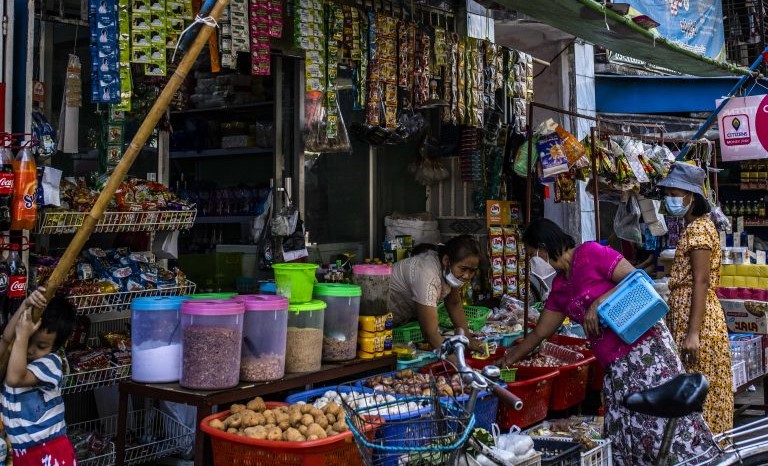Mawlamyine, 21 November
The nationwide conflict and high exchange rate for Thai baht have pushed up the prices of rice and basic foods, traders and housewives told Than Lwin Times.
Since November, fighting has intensified, regional instability has increased, transportation difficulties have arisen, and the Myanmar currency has depreciated in contrast to the Thai baht, causing an increase in commodity prices.
The Thai baht exchange rate was only 85 kyats per baht at the beginning of November, and November 20, it rose to around 100 kyats per baht on 20 November.
As a result of the fighting, the price of a bag of Paw Hsan Mmway rose to more than 100,000 kyats while a bag of Emahta coarse rice climbed to around 80,000 kyats during the harvest season.
A trader told Than Lwin Times that the strengthening Thai currency and rising commodity prices could put the country in dire straits.

The military council needs to maintain the rising baht prices caused by the country’s instability as soon as possible, or else basic food prices will skyrocket.
Within a few days, the price of Thai products jumped by 500 kyats to 3,000 kyats depending on the type.
A housewife stated, “The rise in prices is causing austerity, and the lack of jobs is making it more difficult to survive.”
Except for agricultural products, Mon State relies heavily on imported goods from Thailand for the majority of its basic foodstuffs, the price of which varies depending of the exchange rate.
Economists have considered that if the current fighting spreads throughout the country, the grassroots are on the brink of famine, including scarcity of goods and exorbitant prices.
News-Than Lwin Times
Photo-CJ

